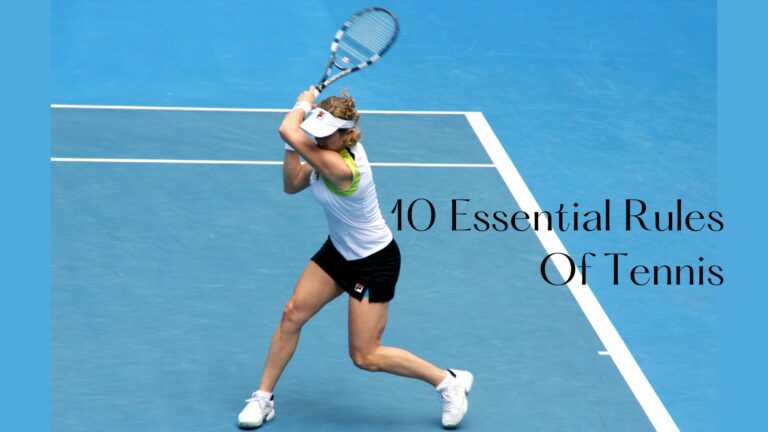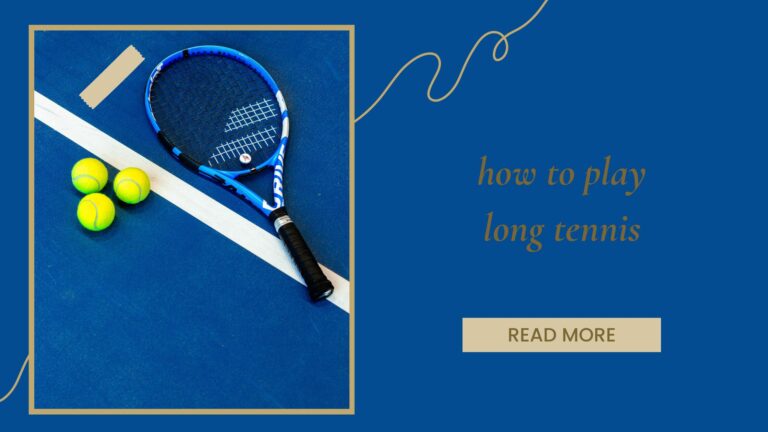Is Gymnastics the Hardest Sport?
Exploring the Physical and Mental ChallengesGymnastics is often hailed as one of the most physically and mentally demanding sports, requiring athletes to display extraordinary strength, flexibility, balance, and grace. The combination of physical and mental challenges sets gymnastics apart from other sports, prompting many to wonder if it truly is the hardest sport. In this article, we will delve into the physical and mental demands of gymnastics to uncover whether it deserves its reputation as one of the most challenging athletic pursuits.
Is Gymnastics the Hardest Sport?
When considering the rigorous physical and mental demands of gymnastics, it becomes evident why many regard it as one of the hardest sports. The combination of extraordinary strength, flexibility, balance, and mental fortitude required to excel in gymnastics sets it apart as a uniquely challenging athletic endeavor. From the awe-inspiring displays of athleticism to the unwavering mental toughness exhibited by gymnasts, the sport continues to captivate audiences and athletes alike with its unparalleled level of difficulty.
In conclusion, gymnastics stands as a testament to the remarkable capabilities of the human body and mind. Its fusion of physical prowess and mental resilience places it among the most demanding sports in the world. Whether one ultimately deems it the hardest sport is subjective, but there is no denying the incredible dedication and skill required to master the art of gymnastics.
Physical Demands of Gymnastics
Gymnastics is a sport that demands a unique combination of physical and mental skills. From incredible feats of strength and flexibility to the mental fortitude required to perform under pressure, gymnasts must possess a wide range of abilities to excel in their discipline.Physical Skills in Gymnastics
Strength, flexibility, and balance are three of the key physical skills required in gymnastics. Gymnasts must have exceptional upper body and core strength to perform gravity-defying maneuvers such as flips, twists, and holds on various apparatus. Additionally, flexibility is crucial for achieving the extreme body positions and movements demanded by the sport. Balance is another essential component, as gymnasts must maintain control and poise while executing complex routines on the beam, bars, and floor.
See also : How to make a disc golf basket
The intense training regimen and physical conditioning necessary for gymnasts are unparalleled. Hours of practice, strength training, and conditioning exercises are essential for building the physical attributes needed to perform at the highest levels of the sport. Gymnasts push their bodies to the limit, constantly striving to improve their strength, flexibility, and balance through rigorous training routines.
Specific gymnastics moves and routines exemplify the physical difficulty of the sport. Vaulting over the table with precise landings, executing intricate balance beam routines, and performing dynamic bar routines all showcase the immense physical prowess and skill required in gymnastics.
Mental Challenges in Gymnastics
In addition to the physical demands, gymnastics also presents significant mental challenges. The mental toughness required for gymnasts to perform under pressure is extraordinary. Competing at the highest levels of gymnastics means facing immense pressure and scrutiny, and gymnasts must possess the mental resilience to perform flawlessly in high-stakes situations.
The mental focus and concentration needed to execute complex routines and skills cannot be understated. Gymnasts must block out distractions, maintain unwavering focus, and execute their routines with precision and confidence. The ability to stay mentally sharp and composed under the intense pressure of competition is a defining characteristic of successful gymnasts.
Dealing with injuries and setbacks is another psychological aspect of gymnastics. The sport can be physically demanding and injuries are not uncommon. Gymnasts must navigate the mental and emotional challenges of setbacks, rehabilitation, and the pressure to return to peak performance. Developing resilience, perseverance, and a positive mindset is crucial for overcoming these obstacles and achieving success in gymnastics.
Comparing Gymnastics to Other Sports
Gymnastics is a sport that requires a unique combination of physical and mental skills, setting it apart from other sports. In this blog post, we will compare the physical and mental demands of gymnastics to those of other sports, and discuss the unique challenges that make gymnastics stand out.
Physical Demands
Gymnastics requires a high level of strength, flexibility, balance, and coordination. Athletes must perform complex acrobatic movements, such as flips, twists, and somersaults, which demand exceptional physical prowess. Unlike many other sports, gymnastics also involves performing these movements on a narrow beam or a set of parallel bars, adding an extra layer of difficulty.
In comparison, sports like basketball and soccer require endurance, speed, and agility, but do not necessarily demand the same level of acrobatic skill and precision that gymnastics does. Additionally, the repetitive impact in sports like running and soccer may result in different types of physical strain compared to the explosive movements required in gymnastics.
Mental Demands
Gymnastics also places a significant emphasis on mental strength and focus. Athletes must overcome fear, maintain concentration, and execute routines with precision and confidence. The mental fortitude required to perform intricate maneuvers on a balance beam or execute a flawless dismount is a unique aspect of gymnastics.
In contrast, team sports like basketball and soccer require strategic thinking, decision-making, and the ability to adapt to changing game situations. While these sports certainly have their own mental challenges, they may not require the same level of individual mental composure and precision that gymnastics demands.
Unique Combination of Skills and Challenges
What sets gymnastics apart is the combination of physical and mental demands. Few sports require athletes to possess such a diverse set of skills, including strength, flexibility, balance, coordination, and mental fortitude. Gymnasts must be able to perform under pressure, execute technically difficult movements, and showcase artistry and creativity in their routines.
In comparison, while other sports may require a combination of physical abilities and mental toughness, the specific blend of skills and challenges in gymnastics is truly unique. The sport demands a level of precision and grace that is unparalleled in many other athletic pursuits.
Personal Perspectives in Gymnastics
Gymnastics, often referred to as the “sport of perfection,” is a dazzling display of strength, flexibility, and grace. Behind the breathtaking routines and seemingly effortless flips and twists, lie the personal perspectives of the gymnasts, coaches, and experts who have dedicated their lives to this demanding sport. In this blog post, we delve into the personal anecdotes, stories, and insights that shed light on the challenges and triumphs of gymnastics.
The Journey of Champions: An Interview with Olympic Gymnast, Aly Raisman
Aly Raisman, a two-time Olympian and six-time Olympic medalist, graciously shared her personal perspective on the journey of a gymnast. “People see the glamorous side of gymnastics – the glitzy leotards and the dazzling performances – but they don’t often realize the immense physical and mental toll it takes,” she says. “The hours of training, the sacrifices, the injuries – it’s a grueling path, but the rewards are immeasurable.”
Raisman’s words echo the sentiments of countless gymnasts who have dedicated themselves to the sport. The rigorous training regimens, the pressure of competition, and the constant pursuit of perfection make gymnastics a demanding endeavor. Yet, it’s the passion and perseverance of these athletes that drive them to push past the challenges and reach for greatness.
Coaching Perspectives
Behind every accomplished gymnast stands a dedicated coach who plays a pivotal role in shaping their journey. Coach Sarah Jenkins, a seasoned gymnastics instructor with over two decades of experience, emphasizes the importance of nurturing both talent and resilience in young athletes. “Gymnastics is not just about mastering the physical skills; it’s about building mental fortitude and emotional strength,” she explains. “As coaches, we strive to create an environment where our gymnasts feel supported, challenged, and empowered to overcome obstacles.”
Jenkins’ insights shed light on the holistic approach to coaching in gymnastics, where the focus extends beyond technical proficiency to encompass mental and emotional well-being. The enduring relationships between coaches and athletes often form the bedrock of the gymnastics journey, fostering trust, guidance, and unwavering support.
The Mental and Emotional Challenges
Dr. Ryan Patel, a sports psychologist with a specialization in gymnastics, sheds light on the mental and emotional challenges faced by gymnasts. “The pursuit of perfection in gymnastics can be both exhilarating and exhausting,” says Dr. Patel. “The pressure to perform flawlessly, the fear of failure, and the psychological impact of injuries are all significant factors that can weigh heavily on athletes.”
Dr. Patel emphasizes the importance of mental resilience, stress management, and self-care strategies in helping gymnasts navigate the psychological demands of the sport. By providing personalized support and guidance, sports psychologists play a crucial role in equipping gymnasts with the tools to thrive both on and off the mat.
Personal Anecdotes
Amidst the rigorous training and intense competition, the world of gymnastics is also filled with stories of triumph and tenacity. From overcoming career-threatening injuries to defying expectations on the global stage, gymnasts exemplify the indomitable spirit of resilience and determination.
One such story comes from Emma Nguyen, a rising star in the world of rhythmic gymnastics. “I suffered a devastating ankle injury that left my future in the sport uncertain,” she shares. “But with unwavering support from my coach, my team, and my own determination, I not only recovered but emerged stronger than ever. It’s a testament to the resilience that defines gymnasts.”
Nguyen’s story encapsulates the unwavering spirit of perseverance that permeates the world of gymnastics. It’s a world where setbacks are met with resolve, and challenges are viewed as opportunities for growth and transformation.
In conclusion, the personal perspectives in gymnastics offer a profound insight into the relentless dedication, unwavering support, and unyielding passion that define the sport. From the voices of Olympic champions to the guidance of coaches and the expertise of sports psychologists, the world of gymnastics is a tapestry of resilience, fortitude, and triumph. It’s a world where the pursuit of perfection is not just a physical endeavor but a deeply personal and transformative journey.







